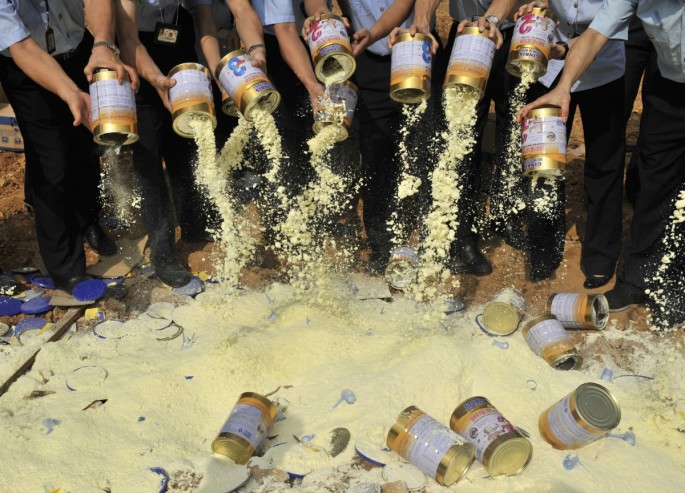The Standing Committee of China’s National People’s Congress (NPC), the country’s top legislative body, adopted an amendment to the Food Safety Law on Friday with the strongest penalties yet for offenders.
Consisting of 154 articles, compared to 104 of the original law, the revamped Food Safety Law contains new articles and provisions including those on on baby formula and online shopping, state-owned Xinhua News Agency reported on Thursday.
The amendments come after a series of food safety scandals in China in recent years, including cases of pork being injected with growth-promoting drug clenbuterol, recycled cooking oil, sale of meat from sick animals, medicines made with toxic gelatin, and rat and fox meat being passed off as fit for human consumption.
The revised law gives heavier punishment to offenders, increasing the cost for violating the legislation, said Huang Wei with the Commission for Legislative Affairs of the NPC Standing Committee.
The new law, which will go into effect on Oct. 1 this year, introduces harsher civil, administrative, and criminal penalties for offenders and their supervisors, including jail time of up to 15 days.
This has been considered tough as other punishments stipulated in the Food Safety Law generally involve fines and revocation of certificates, Xinhua said in its report.
Consumers will also benefit from added protection from the amendment, as they can now demand reparation of up to three times in losses suffered from substandard food. Previously, only compensation of 10 times the price of food was allowed.
The amendments also add provisions for landlords of production sites who turn a blind eye to illegal activities on the premises, as well as to suppliers who sell unlawful substances to producers knowing that they will be added to food. If found guilty, offenders can have their revenue seized and fined up to 200,000 yuan.
Administrative penalties, such as demotion and dismissal, will also be imposed on food and drug regulators and other officials who fail in their duty to protect the public or participate in cover-ups.
Other regulations stipulated in the amendment include the addition of new articles on online shopping, clarifying the liabilities of shopping platforms, and mandatory testing and registration of powdered baby milk formula with the China's Food and Drug Administration (CFDA).
"Some producers are creating new formulas purely for the sake of marketing," said a spokesman from the CFDA.
In 2008, infant formula produced by the Sanlu Group, a major dairy farm in north China, was found to contain melamine. Six babies died and thousands fell ill from the contamination, leading to the first Food Safety Law being enacted in 2009 and increase of sales of baby formula from countries like Australia, New Zealand and Germany, which now have strict export quotas for China.



























